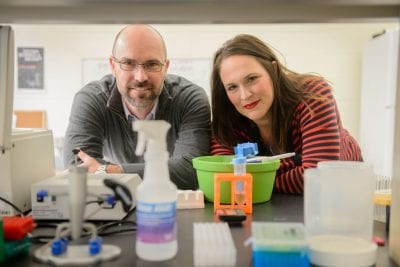 Come join us on Monday October 24th, 2016 for the 20th Annual Neuroscience at Storrs from 5p-8:30p, Laurel Hall, First floor. There will be presentations from Dr. Baumbauer’s and Dr. Young’s Lab http://neuroscience.uconn.edu
Come join us on Monday October 24th, 2016 for the 20th Annual Neuroscience at Storrs from 5p-8:30p, Laurel Hall, First floor. There will be presentations from Dr. Baumbauer’s and Dr. Young’s Lab http://neuroscience.uconn.edu
 Come join us on Monday October 24th, 2016 for the 20th Annual Neuroscience at Storrs from 5p-8:30p, Laurel Hall, First floor. There will be presentations from Dr. Baumbauer’s and Dr. Young’s Lab http://neuroscience.uconn.edu
Come join us on Monday October 24th, 2016 for the 20th Annual Neuroscience at Storrs from 5p-8:30p, Laurel Hall, First floor. There will be presentations from Dr. Baumbauer’s and Dr. Young’s Lab http://neuroscience.uconn.edu
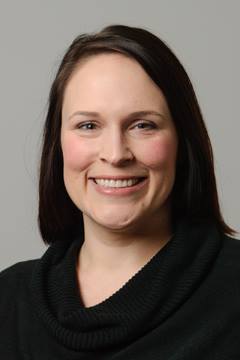 Dr. Erin Young is giving the Neuroscience Department Research Seminar in the Lowe Learning Center on September 27th.
Dr. Erin Young is giving the Neuroscience Department Research Seminar in the Lowe Learning Center on September 27th.
The talk is entitled “Systems genetic and pharmacological analysis identifies candidate genes underlying mechanosensation.” Lowe Learning Center in Farmington, CT from 11:30am-12:30pm.
Dr. Ruth Lucas and Undergraduate Honors Student and University Scholar, Victoria Sylvestre, at the Council for Advancement in Nursing Science in Washington D.C. Dr. Lucas won an award for her outstanding research – way to go Dr. Lucas and Victoria!
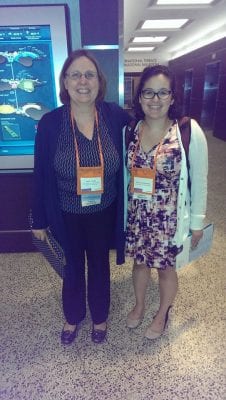
Congratulations to CAMP Nursing Student, Anna Zhuang, for her Scholarship!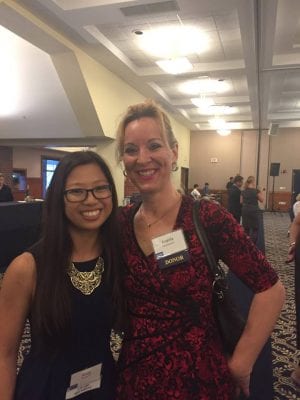
CAMP Phd Student, Mallory Perry, attends Summer Genetics Institute at National Institute of Health and appointed as Jonas Scholar. Way to go Mallory!

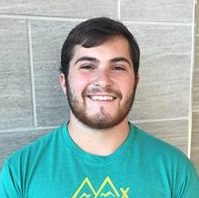 Congratulations to Joseph Fetta, a School of Nursing sophomore, who has received a spring 2016 UConn IDEA* grant award from the Office of Undergraduate Research. The award is for his proposal Memory Deficit Due to Traumatic Brain Injury (TBI) and Concussion in Incoming College Students. He will use the funds to screen the incoming class of UConn students regarding their history of TBI and concussion. Following the screening, he will use established instruments to implement and test a memory enhancing intervention. Mr. Fetta’s advisor and mentor is Dr. Angela Starkweather.
Congratulations to Joseph Fetta, a School of Nursing sophomore, who has received a spring 2016 UConn IDEA* grant award from the Office of Undergraduate Research. The award is for his proposal Memory Deficit Due to Traumatic Brain Injury (TBI) and Concussion in Incoming College Students. He will use the funds to screen the incoming class of UConn students regarding their history of TBI and concussion. Following the screening, he will use established instruments to implement and test a memory enhancing intervention. Mr. Fetta’s advisor and mentor is Dr. Angela Starkweather.
Joey also spent the summer at the National Institute of Nursing Research with Dr. Jessica Gill (https://irp.nih.gov/pi/jessica-gill)! He was selected by Dr. Gill based on his interest of traumatic brain injury genetics, as part of the Summer Internship Program https://www.training.nih.gov/programs/sip.
Congratulations to Dr. Angela Starkweather who has been awarded Scholarship Facilitation Funds for fall 2016 through the Office of the Vice President for Research. Dr. Angela Starkweather’s funds are for Optimizing Yoga for Chronic Low Back Pain.
Dr. Angela Starkweather has been awarded a prestigious NINR P20 Center of Excellence grant (P20NR016605). The purpose of the Center for Accelerating Precision Pain Self-Management (CAPPS-M) at the University of Connecticut School of Nursing (UConn SON) is to advance theory-based symptom SM interventions, with a focus on pain, and improve pain self-management and health outcomes in diverse populations with acute and chronic pain. The purpose of this application in response to the RFA-NR-16-001 for Centers in Self- Management of Symptoms: Building Research Teams for the Future (P20) is to build interdisciplinary teams and feasibility research in precision pain SM through centralized infrastructure, mentorship, and shared resources. The Specific Aims of the CAPPS-M are to: (1) Select and support pilot studies that advance the science of precision pain self-management for individuals and families across the lifespan; (2) Expand the number and quality of theory-driven research projects aimed at understanding the influence of the biological (genomic/-omic) context of pain on self-management process and outcomes; (3) Enhance the research infrastructure by expanding the number of nurse scientists and interdisciplinary collaborators involved in advancing the science of pain self-management; (4) Build the capacity for sustainable research teams focused on precision pain self-management through collaborations among interdisciplinary scientists, community networks of individuals and families and partner centers and institutions. We will achieve these aims by: 1) building upon the relationships and infrastructure initiated through investments made by the School of Nursing (SON) and University to support interdisciplinary pain research; 2) focusing on the integration of the biological context of pain within a pain SM science paradigm to further develop precision interventions for individuals and families; 3) advancing the science of pain SM by using the Individual and Family Self-Management Theory as a framework in pilot projects; and 4) capitalizing on our strengths in basic and clinical pain research, genetic/genomic science, community engagement and partnership with the Connecticut Institute for Clinical and Translational Science
Drs. Young and Baumbauer take about pain genetics and the gastrointestinal system. Read the full article in UCONN Today!
Excerpt from Article:
 Many healthcare practitioners are trained to regard pain as being important only as an indicator of how successful treatment is. If a patient’s cancer is in remission but they still have pain, well, that doesn’t fit into the paradigm. If the patient is fully recovered but has lifelong pain stemming from the surgery that cured them, well, some things can’t be helped. But nurses tend to approach pain differently. If it affects a patient’s quality of life, a nurse will want to alleviate it. Young is a pain geneticist, not a nurse, but her position in CAMP and the School of Nursing lets her work in collaboration with nurses all the time. It’s a good fit.
Many healthcare practitioners are trained to regard pain as being important only as an indicator of how successful treatment is. If a patient’s cancer is in remission but they still have pain, well, that doesn’t fit into the paradigm. If the patient is fully recovered but has lifelong pain stemming from the surgery that cured them, well, some things can’t be helped. But nurses tend to approach pain differently. If it affects a patient’s quality of life, a nurse will want to alleviate it. Young is a pain geneticist, not a nurse, but her position in CAMP and the School of Nursing lets her work in collaboration with nurses all the time. It’s a good fit.
Dr. Angela Starkweather talks about CAMP in UCONN Today !!
Excerpt from the Article:
One hundred million of anything is a lot. And according to the National Institutes of Health (NIH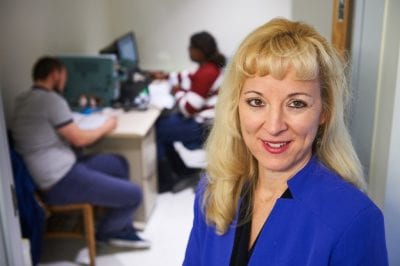 ), that’s approximately the number of people in the United States who suffer from chronic pain. Pain that is generally described as lasting longer than six months. Pain that can lead to all sorts of associated physical and mental symptoms affecting a person’s ability to enjoy anything resembling a normal life. Pain that just won’t go away.
), that’s approximately the number of people in the United States who suffer from chronic pain. Pain that is generally described as lasting longer than six months. Pain that can lead to all sorts of associated physical and mental symptoms affecting a person’s ability to enjoy anything resembling a normal life. Pain that just won’t go away.
In an age when advances in medicine seem to be announced almost daily, treatment of those with chronic pain appears to be as frustrating for those in the medical community as it is to those who suffer from it. Pain is complicated. Pain is stubborn. And pain often doesn’t play by the normal rules of medicine.
Under the guidance of Regina Cusson, dean of the School of Nursing, who is a long-time advocate of an integrated approach to pain prevention and management – and in collaboration with UConn Health and Connecticut Children’s Medical Center – UConn has established theCenter for Advancement in Managing Pain(CAMP), in an effort to increase understanding of chronic pain and provide a source of relief to those millions who suffer from it. The Center’s director is Angela Starkweather.